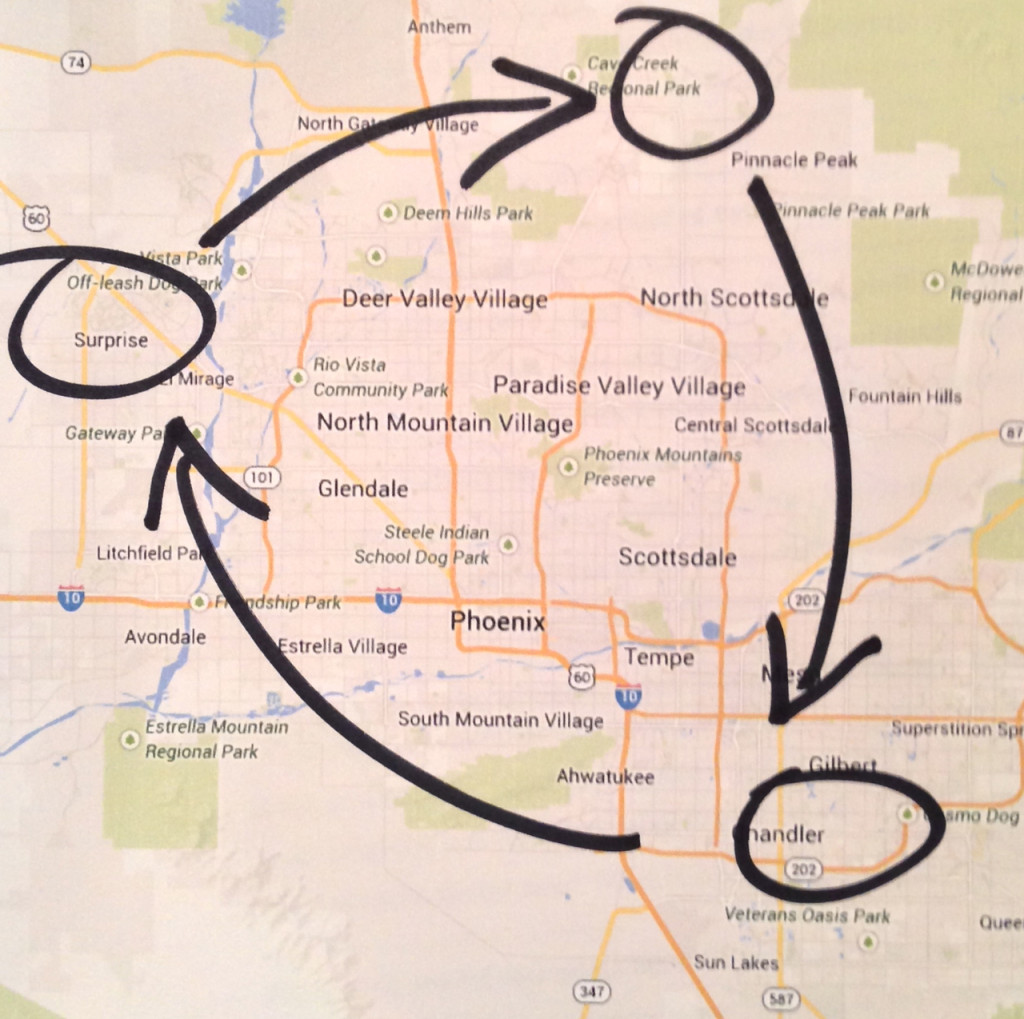
Reader Question: Hi, We are ready to begin searching for a first home. We live north of a city with over 4 million people. My husband has a long commute to a close neighboring city. We cannot decide if we should move close to his job, stay where we are (what we are familiar with and where my part time work is), or move close to my parents who also live here (We hope to start a family soon). We asked a friend to show us homes in one area near my husband’s job. It was NOT the right area for us. We want to look at another area near his job, in the area we currently live and near my parent’s home. We want to see what we could buy for the same money. These 3 areas are an hour apart from each other. Do we ask our Realtor friend to show us homes in all these areas, or just homes near my husband’s work? Then find an agent whose selling area is where we live now. Thanks for your help. Ashley C.
Monty’s Answer: Hello Ashley, and thanks for your question. Your idea of shopping comparable homes in multiple areas is a good one. By researching the alternatives, you will be more comfortable moving ahead. It will help tremendously. Here are several comments to help answer the question, for which there is no cut and dry answer:
1. One of the greatest Americans, Ben Franklin, had a very simple method to help make important decisions. I am told he used a blank sheet of paper and drew a line down the center of the page. On the left, he wrote down all the positive reasons for doing “X”. On the right side of the sheet, he wrote down all the reasons not to go ahead. Lay down three sheets of paper, one for each area. Going through this simple exercise transfers all these thoughts out of your head onto a physical stage. It will enable a clear view of the situation.
2. There is a strategy in buying real estate called an “area tour.” An area tour is a situation where a real estate agent (or agents) demonstrates three properties, one in each area, as a “representative sample” of the neighborhood. You know what you can afford for a monthly payment if you are pre-approved for a mortgage. As an example, assume a monthly payment of $1,200.00 including interest, principal, taxes and insurance. Share this information with the agent (or agents) and visit one “representative” home in each area that will have a $1,200.00 monthly payment. It is fairly common for this exercise to help the answer jump out.
3. You mentioned starting a family. Consider including the best school districts as a consideration for which neighborhood to choose. A common error for the first time homebuyer with no children is to factor in other influencers and leave out the school discussion. Including this now could prevent an unnecessary relocation in just a few short years.
4. Having a “friend in the business” can be a blessing or a curse. Consider having a discussion with your friend to learn how he feels about showing property in these different areas. Would he only do this because of the friendship? Ask him how will he know which neighborhoods have the best schools? How will he be able to determine the future tax rate trends? Will the most insightful answers require him to exert more effort? Has he ever conducted an area tour? Agents that specialize in corporate relocations do this regularly. Sometimes real estate agents expand and contract their territories based on market conditions. Listen carefully to his answers and then decide if seeking additional help is necessary. He may make this an easy decision.
I recently found an agent in a large city for a client. In conducting my search, I had agents that operated in the northwest quadrant tell me they would not go to the southeast quadrant because it took too much time and they were not familiar with those suburbs. Other agents told me they go anywhere in the metropolitan area because the information that is relevant to people is readily available. Every agent has different capabilities, methods of operating and comfort levels.

Leave a Reply
You must be logged in to post a comment.